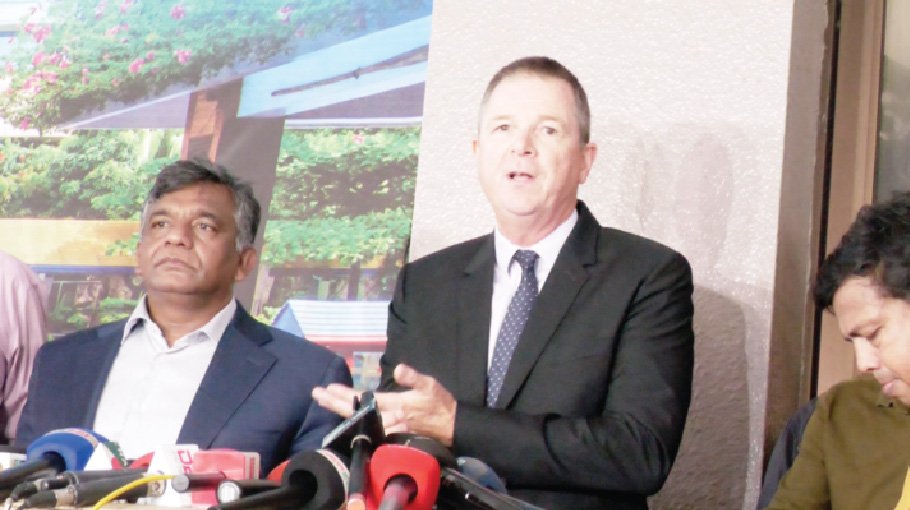Marshall signals new era of accountability in Bangladesh cricket

Bangladesh cricket may be entering a new chapter — not on the pitch, but off it. The appointment of Alex Marshall, former head of the ICC’s Anti-Corruption Unit, as the overseer of the Bangladesh Cricket Board’s Integrity Unit, is more than symbolic. It’s a statement of intent.
Marshall arrives with a reputation for rigour. During his tenure at the ICC, he oversaw investigations that led to high-profile suspensions, including that of Bangladesh’s own Shakib Al Hasan. Now, he returns not as an enforcer from afar, but as a reformer within — tasked with rebuilding trust in a system that has, in recent years, been riddled with whispers and allegations.
His message at Tuesday’s press briefing was clear: corruption is a global threat, and Bangladesh must not be complacent. Franchise leagues, he warned, are particularly vulnerable — and the Bangladesh Premier League (BPL), despite its popularity, is no exception. The league has long been dogged by controversy, from payment disputes to more serious integrity concerns. Marshall’s pledge to make the BPL “high-standard, professional, and secure” is both timely and necessary.
But this won’t be solved by rhetoric alone. Marshall has promised a full restructuring of the Integrity Unit, with education at its core. Players — both men and women — must be equipped to recognise and resist corrupt approaches. Administrators must be held to higher standards. And the league itself must be run with transparency, from ownership structures to financial oversight.The challenge is steep. Corruption doesn’t announce itself; it creeps in through gaps in governance, through unchecked influence, and through silence. Marshall’s task is not just to plug holes, but to build a culture where integrity is non-negotiable.
If he succeeds, Bangladesh cricket may finally shed the shadows that have lingered too long.



